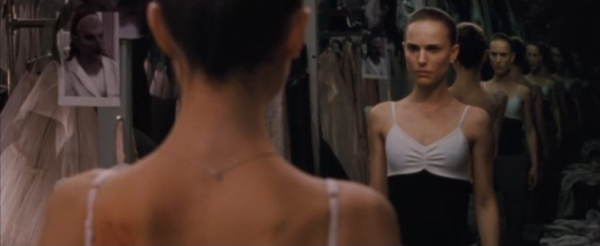
Are you crazy is that your problem? Maybe but crazy is often beautiful.
There were no surprises, plot twists or clever ruses in Darren Aronofsky’s Black Swan. Simply put, it was a character study chronicling the downward spiral of a young woman’s sanity in the ultra competitive world of ballet. If you’ve ever had any experience with athletics, you can certainly relate to the heavy abusive rituals that Nina Sayers (Natalie Portman) endured on a daily basis in her quest for artistic perfection. From the movie’s start, it’s painfully apparent ballet can never be a recreational activity, it’s an all consuming mistress with a stop watch who will take second place from no one.
Unfortunately perfection has its price. The very unpredictable Thomas Leroy (Vincent Cassel) has final say in who dances to his beat in the Black Swan play. Much to Nina’s delight, the lead is hers to lose but on the condition that she would do whatever Mr. Leroy says. As his demands are raised so did Nina’s stress level.
Enter Nina’s rival played by Mila Kunis. Kunis’ free spirit without a care or consequence was the anti-thesis of Nina’s approach to life and the perfect foil for her own downfall as her darker half takes over.
Darren Aronofsky mastery over his craft was also a feat of perfection. The camera work, editing, sound, and execution of the script was every bit of the White Swan: Form and function. The suspense, seduction, and disturbing horrific self destruction of human fragility was his Black Swan. Together, it’s no surprise that this film had received so many nominations. Not since Jodie Foster and Jonathan Demme has an actress and director duo been so insync. Portman didn’t just convince us of White and Black sides of her soul but the most important part, the painful transformation. It’s the transition scenes that really raised the stakes and invested our fears and hopes for Nina.
If I could rate Black Swan with a beverage of choice, it’s easily a fine wine that’s just going to get better with age. Cheers.


















